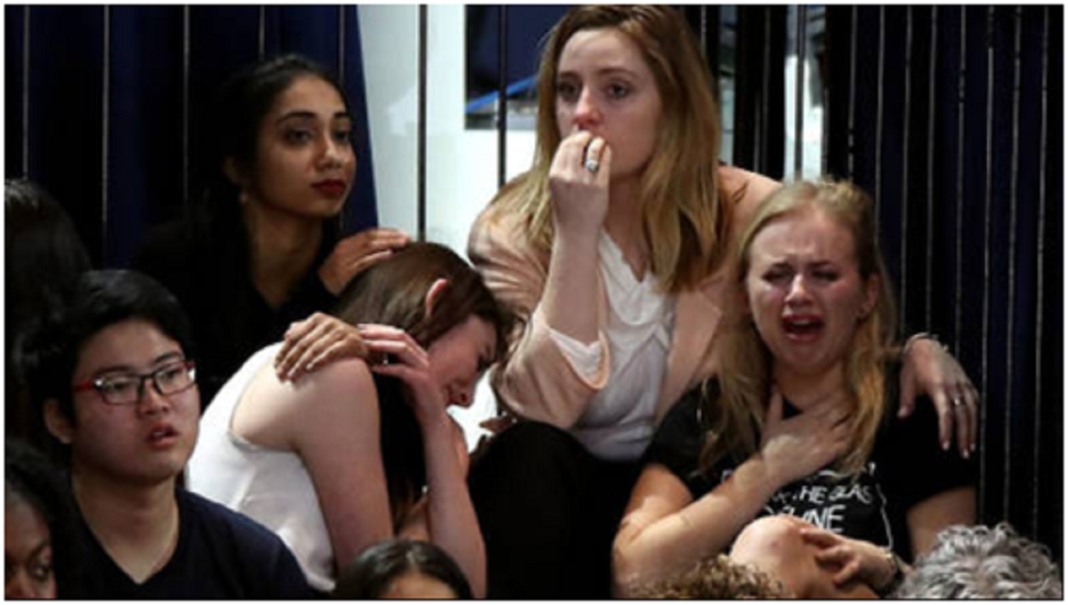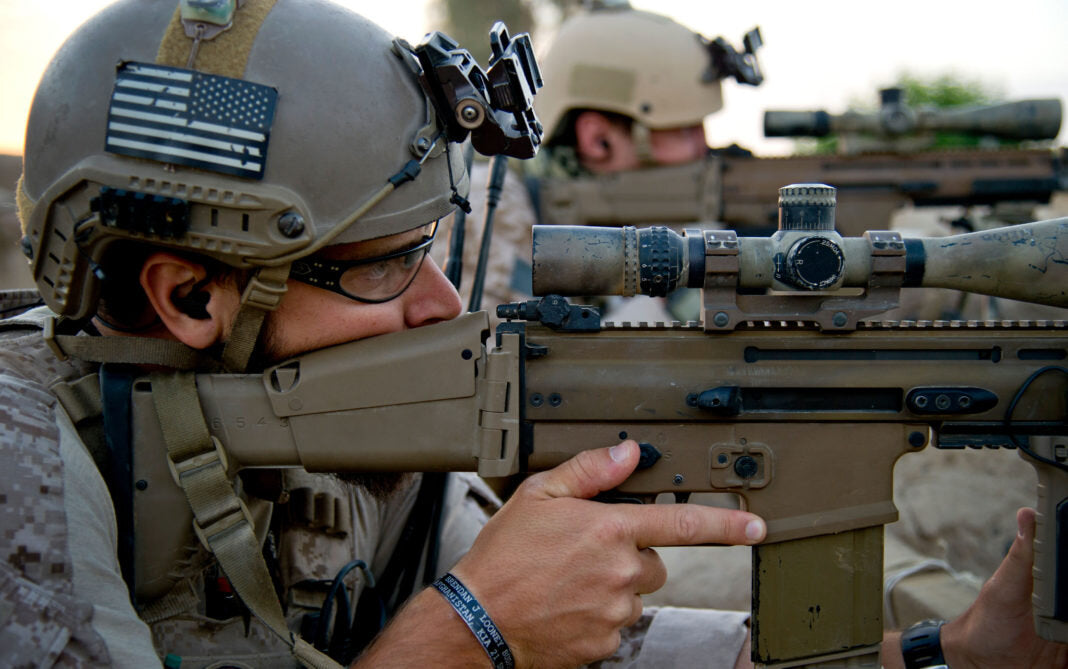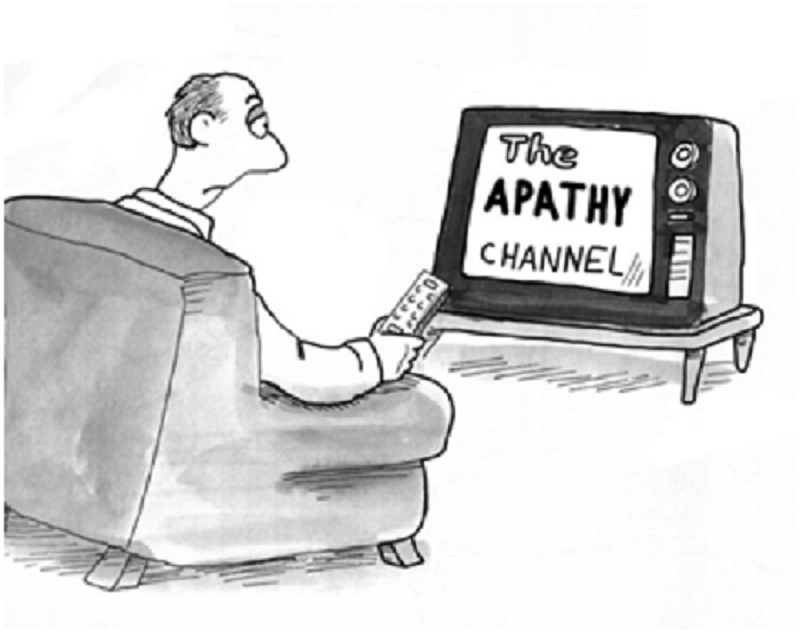
GWOT vs WW2 Vets





A common belief among many quarters is that we have gone squishy. From participation trophies to so called “microaggressions”, the “snowflake” youth of today will never measure up to the metal of our forebears, or so the thinking goes. Nowhere is this more accepted than in the military, where we bemoan stress cards and touchy feely Drill Sergeants.Most reading this would probably agree that the venerable warriors of World War II, who faced off against an enemy that was industrial, highly trained, and well equipped are worthy of the “greatest” mantle. I know I speak for many in the GWOT ranks when I say I preferred my batch of low tech OPFOR dirtbags over that steel laden maelstrom facing our boys in 1944.But I had an epiphany of sorts that challenged this assumption, and which I feel is worthy of review and discussion. I am going to argue that the kids of the GWOT are the rightful usurpers of the throne and mantle of “Greatest Generation.” It is not that we necessarily want the title, nor need it, but as you will see, this argument will challenge the opinion that we will never measure up to the studs in OD Green of the past.I had the good fortune to frequently interact with and support the surviving crop of World War II members of my division. And because I had been raised to defer to these aging gods of war, I would enter every conversation with them like a pup approaching the Alpha Dog of the pack: with great humility and respect.They were, after all, the greatest.Right?The holders of the pole position in the pantheon of American military history?Well, that was the assumption I operated under until it was challenged by these very same veterans. Surprisingly, what I found during the years I worked with and interviewed them was that almost to a man, they pushed back against their perceived supremacy. In fact, they suggested we, the GWOT vets, were the rightful owners of the title “Greatest.”The first couple of times I heard them make this case, I thought they were blowing smoke up my ass in jest. You never knew what was afoot when they cracked open bottles of cognac and settled in for some serious late night shit talking.But as the scope of my interactions increased, I began to appreciate the logic of their seemingly blasphemous argument. And today, I stand before you as a convert to the belief that the Dudes and Dudettes of the GWOT are equally, if not definitively, deserving of the title of Greatest of All Time.If you’ve had the opportunity to sit down with a World War II veteran, you probably also saw them as the Alpha dogs. When they wanted to share war stories, I was thoroughly embarrassed to reel off my lame experiences fighting a squad or platoon of low tech Muj dirtbags.Yet they were extremely interested in hearing my tales, wanting to dive deeper and deeper into what went down. I should be very clear here that my war experiences were not that exciting. An IED there, an ambush here, but nothing worthy of a sexy Silver Star. I would always pepper my stories with phrases like “yeah, but it was nothing like facing off against Panzers and SS divisions like you all did.”Still, they were not buying the supposed supremacy of their experiences over mine. Point by point, from veteran to veteran, they built a compelling argument that reshaped my whole perception of how the two generations stack up.The first argument went to the origins of their military service. They would remind me that they were all drafted into glory, and that the current GWOT gang is an all-volunteer force. I remember one WWII infantry scout veteran, Rich Marowitz, telling me the following: “Ben, we all went to war. Our whole generation mustered for the fight. Not everyone wanted to go, and given the choice I know quite a few who would have sat this war out at home. You guys chose to serve, even in a war that wasn’t that popular. 100% volunteer. That’s something to be proud of.”The second point of their argument was based on the sense of security and strength they felt being amassed in large formations, fighting along clearly defined front lines. I remember one infantry NCO vet named Pete tell it like this: “We had a front line, and when we were on our side of it, we felt safe. We were relaxed and we didn’t worry about anything when we were in the rear. We drank champagne and cavorted with French women.”Compared to Afghanistan, that sounds like a nice gig if you can get it.Pete would then contrast this with our current wars. “But you all go out on patrols with a tiny handful of men, and that is always un-nerving. We always knew we had thousands of allies within a mile, so that was a psychological security blanket that helped us cope.” Truth be told, Pete was right. On many missions in Afghanistan, I left the wire hunting for bad guys with only one other American soldier, leading a couple squads or a platoon plus of Afghan National Army soldiers as an embedded trainer. Pete chimed in at this point of my story, “you couldn’t have made me do that. I’d rather get court martialed for refusing an order, than be out there in the wilderness with only one other American.”They had a front line in Europe, and once they came off it, they had a worry free zone. Iraq and Afghanistan had a 360 degree, 24 hour/7 day a week war, that had no safe zone and no time-out. Our front line was everywhere we went, with no off switch.Another point they would make was the nature of the enemy, and how the enemy fights. Pete would say “the Germans had nice fancy uniforms. We could see them a mile away with their shiny helmets. They wore those uniforms with pride. In France, a German soldier was never confused with a civilian. But in your war, none of the enemy wears uniforms. These Taliban and Al Qaeda are farmers waving at you as you approach them, and warriors shooting you in the back the second you pass by.”The final aspect of this argument was very hard for the World War II guys to talk about: the notion that their generation was somehow mentally tougher, and immune to the stresses of combat. Far too many World War II guys drank themselves to death upon their return home, or committed suicide, or hid the root cause of their anxiety from friends and family. I am reminded of one of these guys, a kickass infantry grunt nicknamed “Shorty”, who during one of these group chats broke down in tears and confessed he had nightmares for years that tormented him and ruined his health. In retelling his story, he made it very clear that he wasn’t stronger than the vets dealing with PTSD today. To the contrary, he felt weaker for never addressing or talking about his demons.Shorty was by no means an anomaly of his generation. According to the subject matter expert Dave Grossman, over 500,000 men were removed from American combat forces during World War II due to psychiatric collapse. An additional 800,000 were classified as emotionally unfit for combat due to psychiatric reasons and were never allowed to join the military.World War II author and researcher Michael Adams wrote in The Best War Ever: America in World War II, “25-30 percent of WWII casualties were psychological cases…under very severe conditions that number could reach as high as 70-80 percent. In Italy, mental problems accounted for 56 percent of total casualties. On Okinawa, where fighting conditions were particularly horrific, 7,613 Americans died, 31,807 sustained physical wounds, and 26,221 were mental casualties.”War creates serious mental health challenges, and the World War II generation was no exception. The fact that our culture is now more open and accepting to this type of mental injury is not a sign of weakness. As Shorty would say, this current “softness” is in fact a sign of strength.In the end, it is always a worthy exercise to analyze and question assumptions of history. In doing so, we may learn things that show the tenacity and courage of the American fighting force today is as potent as it was with the boys of World War II.
Written By Ben Tupper
October 2, 2018









